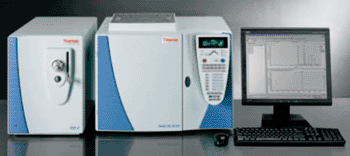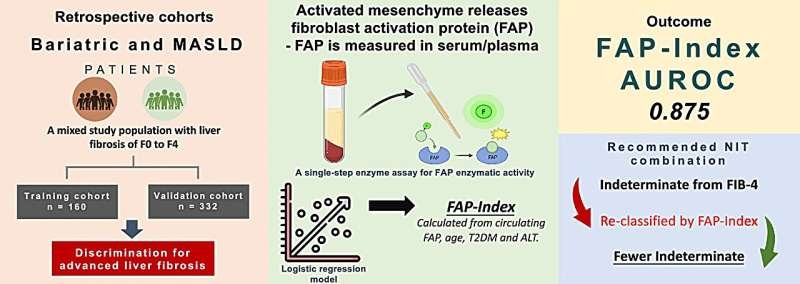Blood Test May Predict Risk for Septic Death
By LabMedica International staff writers
Posted on 08 Aug 2013
Sepsis is a common cause of death, but outcomes in individual patients are difficult to predict, however a novel blood test may facilitate such a prediction.Posted on 08 Aug 2013
Comprehensive, integrated analysis of molecular measurements may allow unbiased identification and prioritization of sepsis outcome signals that may be obscured by false discovery cutoffs or over interpreted by targeted hypothesis testing.

Image: DSQ II single quadrupole gas chromatography/mass spectrometry systems (Photo courtesy of Thermo Scientific).
A team of scientists collaborating with the National Center for Genome Resources (Santa Fe, NM, USA) evaluated 292 patients admitted to emergency departments between 2005 and 2009 with suspected community-acquired sepsis, defined as acute infection and two or more systemic inflammatory response syndrome criteria. This group included patients from three tertiary care hospitals: an initial discovery cohort and two validation patient sets.
Biochemicals in plasma with a mass-to-charge (m/z) ratio of 100 to 1,000 daltons were measured using label-free liquid chromatography (LC) and gas chromatography (GC) and mass spectrometry (MS). Clinical assays of serum creatinine, capillary lactate, and serum glucose correlated well with log-transformed normalized plasma MS values indicating that the MS assays of metabolite concentrations were semi-quantitative. Nontargeted ultra-performance liquid chromatography (UPLC)–MS/MS and GC-MS analyses were performed at Metabolon (Durham, NC, USA). The GC-MS was performed on a Thermo-Finnigan Trace DSQ fast-scanning single-quadrupole MS (Thermo Scientific; Waltham, MA, USA)
The biomarker panel consisted primarily of carnitine esters with medium- or short-chain fatty acids and branched-chain amino acids. The plasma concentrations of the carnitine esters were decreased in sepsis survivors and elevated in sepsis nonsurvivors relative to controls. Fatty acid levels were also elevated among the sepsis nonsurvivors. There were no major differences between patients with infections with Streptococcus pneumonia, Escherichia coli, or Staphylococcus aureus. The differences between survivors and nonsurvivors increased over time, so that serial testing in individual patients may be more beneficial in differentiating those patients with poor outcomes. The study was published on July 24, 2013, in the journal Science Translational Medicine.
Related Links:
US National Center for Genome Resources
Metabolon
Thermo Scientific














